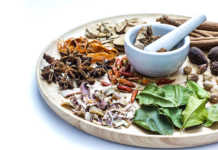
We all experience digestive troubles from time to time – so how do you know if it’s irritable bowel syndrome? IBS complicates the life of more than 16 per cent of the population, mostly women. For some, it is a mild annoyance; for others, it may sabotage their ability to work, travel and enjoy normal social activities. Rare in young children, the onset age is usually adolescence or early adulthood; however, older adults are not immune.
Unlike irritable bowel disease, IBS is a disorder marked by a collection of specific symptoms related to the functioning of the large colon. Cramping, abdominal pain and bloating, are telltale symptoms. For the IBS sufferer, these conditions usually disappear following a bowel movement. Abnormal bowel movements that may alternate between diarrhea and constipation, or primarily one or the other, are also key indicators.
Other indicators include loss of appetite, whitish mucous in the stool, the feeling that you have not completed a bowel movement and a worsening of symptoms during menstrual periods. While there are no specific tests for IBS, your doctor may want to do a complete medical examination and blood tests to rule out other possible sources. A GI series and/or colonoscopy may also be scheduled.
The causes of irritable bowel syndrome may be multifactorial. It would appear that the muscles in the large intestine, known as the colon, are extra sensitive to stretching, moving or nerve stimulation from the brain. Stress also appears to be a trigger of an eruption of symptoms. The nerve endings in the colon may overreact to brain warning signals, causing painful contractions and cramping.
Treatment for IBS includes three components: lifestyle and diet changes, natural health products and stress relief:
•Lifestyle adjustments may include adding regular exercise improving your sleep habits to reduce anxiety levels. Eliminate caffeine, alcohol, carbonated drinks, dairy products, chocolate, artificial sweeteners and grains. A natural diet of whole foods, fibre-rich fruits and vegetables is recommended. Learning to eat slowly is beneficial.
•Natural remedies:
•Probiotics: 1-10 billion CFU per day
• Fibre: 3-5 grams daily at bedtime
•Peppermint oil: take capsules as directed between meals daily
•Stress relief through counselling may provide useful tools for reducing anxiety and depression. Meditation and hypnosis as well as life coaching can also alleviate some of the stress.
Proper treatment can limit the symptoms of IBS and improve your overall quality of life. As with any medical concern, talk to your healthcare practitioner before you try to address this condition yourself.













